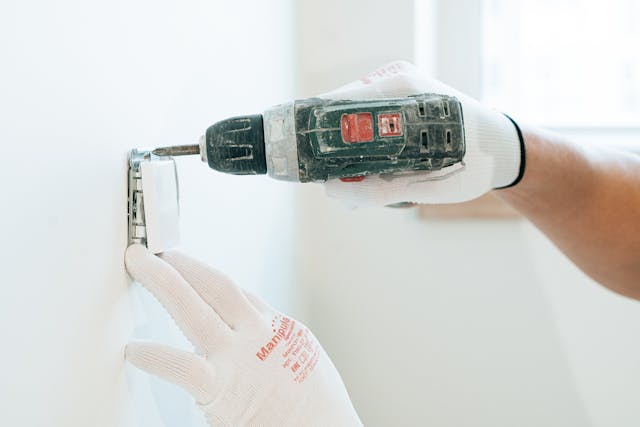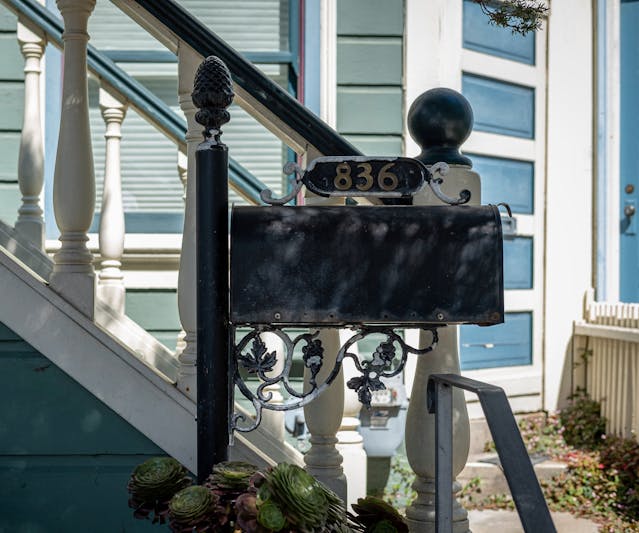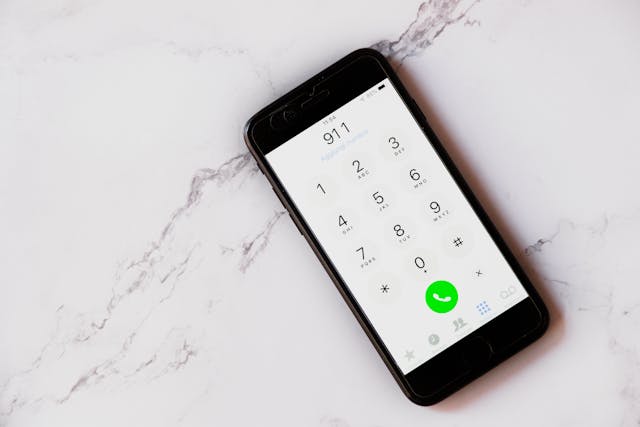.jpg)
Key Takeaways
Meeting rental safety standards protects tenants and minimizes legal and financial risk.
Regular inspections, proper maintenance, and strong communication are key to staying compliant.
Working with a property management company like SGI Property Management Phoenix ensures your property remains safe and legally sound.
Safety should be a top priority for every rental property owner. Ensuring that your rental meets safety standards not only protects your tenants, it also protects your investment and reduces your legal risk.
Whether you manage a single unit or a full apartment complex, understanding safety requirements and best practices can go a long way in maintaining tenant satisfaction and property value.
SGI Property Management Phoenix helps landlords across the region ensure that their properties meet or exceed local and national safety codes.
GET A FREE RENTAL ANALYSIS
Free Rental Analysis
Understanding Legal Safety Standards
Every city, county, and state has its own rental housing codes. These regulations outline the minimum safety requirements that a property must meet to be considered habitable.
Failing to comply with these standards can lead to fines, legal action, or even forced relocation of tenants. Understanding and applying these standards is essential for responsible property ownership, so make sure you know all the terms that come with being a landlord.
Building and Housing Codes
Basic safety starts with structural integrity. Your property should have secure walls, floors, staircases, and roofing to prevent accidents and damage. Entryways and exits must function properly and remain free from obstructions.
.jpg)
Additionally, local laws often require the following:
Adequate heating and ventilation.
Safe and functional electrical and plumbing systems.
Proper lighting in stairwells and common areas.
Working smoke and carbon monoxide detectors.
Emergency exits and unobstructed egress paths.
If your property is older, it is especially important to have it inspected regularly by licensed professionals who can identify safety hazards or outdated systems.
Smoke and Carbon Monoxide Detectors
Smoke alarms are a legal requirement in all sleeping areas, hallways outside bedrooms, and on each floor of the rental. Carbon monoxide detectors must be installed in properties with gas appliances or attached garages.
To keep tenants safe, test all detectors regularly and change batteries at least once a year. Long-life detectors are an option, but even those should be checked periodically. Always verify the functionality and correct placement of these devices during move-ins and scheduled inspections.
Fire Safety Equipment
Fire extinguishers are often required, especially in kitchens and on each level of a building. These extinguishers must be visible, easy to reach, and maintained according to manufacturer instructions.
Additionally, ensure that all exits, including bedroom windows, are operable and provide an escape route in case of fire. In multifamily buildings, emergency exit lighting is necessary and should be checked regularly to confirm it functions during power outages.
Electrical and Plumbing Safety
Outdated wiring, broken outlets, and overloaded circuits can create serious fire and shock hazards. Likewise, plumbing issues such as leaky pipes, clogs, or malfunctioning water heaters can cause costly water damage and health concerns.

Hire a licensed electrician and plumber to inspect your systems at least once a year, especially if the property is more than 15 years old. Taking a proactive approach to repairs will help prevent emergencies and protect your investment.
Going Beyond the Minimum: Best Practices
Meeting legal requirements is a great start, but going beyond the basics helps improve tenant satisfaction and reduce turnover. Best practices can prevent problems before they arise and strengthen your property's reputation.
Preventing Mold and Moisture
Mold usually results from excessive moisture due to poor ventilation or leaks. Install exhaust fans in kitchens and bathrooms, and inspect areas under sinks, behind appliances, and around windows for condensation or water damage.
Respond quickly to any signs of mold and encourage tenants to report damp areas immediately. Addressing moisture early can help prevent long-term structural damage and health issues.
Safe Air Quality and HVAC Systems
Air quality is often overlooked but plays a key role in tenant health. Dirty HVAC filters and neglected systems can circulate allergens or create respiratory problems.
Change air filters every three months and clean vents regularly. Schedule annual HVAC servicing to ensure systems operate safely and efficiently throughout the year.
Exterior Safety
The exterior of your property should be as safe as the interior. Cracked sidewalks, broken steps, or loose railings can cause injuries and increase liability.

Inspect outdoor areas routinely, especially before seasonal weather changes. Trim trees and shrubs, install motion-sensor lighting near entrances, and keep walkways free from debris.
CONTACT US TODAY FOR MORE INFORMATION
Contact
Pest Control
Pests can quickly become more than a nuisance. They can damage property and pose health hazards. To prevent infestations, seal cracks and gaps around windows, doors, and foundations.
Schedule routine pest inspections and respond promptly to tenant complaints. Preventive treatments are often more effective and less expensive than dealing with full infestations.
Security Measures
A secure home helps tenants feel safe and valued. At a minimum, install working deadbolts, secure window locks, and peepholes. In larger buildings, consider controlled access systems or monitored cameras in shared areas.
Always follow privacy laws when using surveillance technology, and inform tenants of security policies in writing.
Regular Maintenance and Inspections
Safety is not a one-time task. Regular inspections and ongoing maintenance are key to keeping your rental in top condition. Preventive care helps you catch small issues before they turn into expensive repairs or safety hazards.
.jpg)
A consistent inspection schedule also builds tenant trust and shows that you are committed to providing a safe living environment. Documenting each inspection can protect you legally and help you stay organized with repairs and improvements over time.
Move-In and Move-Out Walkthroughs
Thorough inspections at move-in and move-out help identify safety issues early. Document the condition of smoke detectors, locks, electrical systems, and appliances.
These records protect you from liability and ensure that necessary repairs are made before new tenants arrive.
Seasonal Checkups
Each season presents unique maintenance challenges. In spring, service HVAC systems and inspect roof integrity. Summer is ideal for testing smoke detectors and checking for electrical strain.
In fall, clear gutters and trim back trees. Even during mild winters, check water heaters and seal windows and doors to improve energy efficiency. Staying on top of seasonal needs helps prevent costly emergencies.
Encourage Tenant Communication
Tenants are your eyes and ears on the ground. Encourage tenants to report issues promptly and provide a simple method for submitting maintenance requests.
.jpg)
At move-in, explain how to report safety concerns and provide an emergency contact number for urgent situations. A responsive approach builds trust and helps you address problems quickly.
How Property Managers Help Ensure Rental Safety
Managing a safe rental requires time, attention, and knowledge of current laws. Partnering with a property management company can make the process more efficient and thorough.
Code Compliance and Expertise
Property managers are well-versed in local laws and building codes. They monitor changes to safety regulations and can correct violations before they become legal problems. Their knowledge ensures your property remains compliant and reduces your exposure to risk.
Routine Inspections
Professional managers conduct comprehensive inspections. They check for leaks, test safety equipment, monitor HVAC performance, and confirm that tenants follow safety policies.
Documentation from these inspections is crucial for liability protection and long-term maintenance planning.
Vendor Relationships and Emergency Response
Emergencies happen, and response time matters. Property managers maintain a trusted network of licensed professionals who can address problems quickly and correctly.

They also handle after-hours emergencies, coordinate repairs, and communicate with tenants on your behalf.
Tenant Screening and Safety Policies
Screening goes beyond credit scores. Property managers look for responsible, respectful tenants who are less likely to create safety hazards. Reducing vacancies also keeps your property the safest it can be.
They also implement and enforce property rules that promote a secure and peaceful environment for all residents.
GET TO KNOW OUR TRUSTED TEAM
About
Bottom Line
Keeping your rental property safe is about more than just compliance. It’s about protecting people and your long-term investment. Safe, well-maintained rentals attract better tenants, reduce costly repairs, and boost your property’s value.
If managing all the safety responsibilities feels overwhelming, consider working with a professional. SGI Property Management Phoenix offers the tools, expertise, and local knowledge to help you meet safety standards, minimize risk, and maintain peace of mind.









